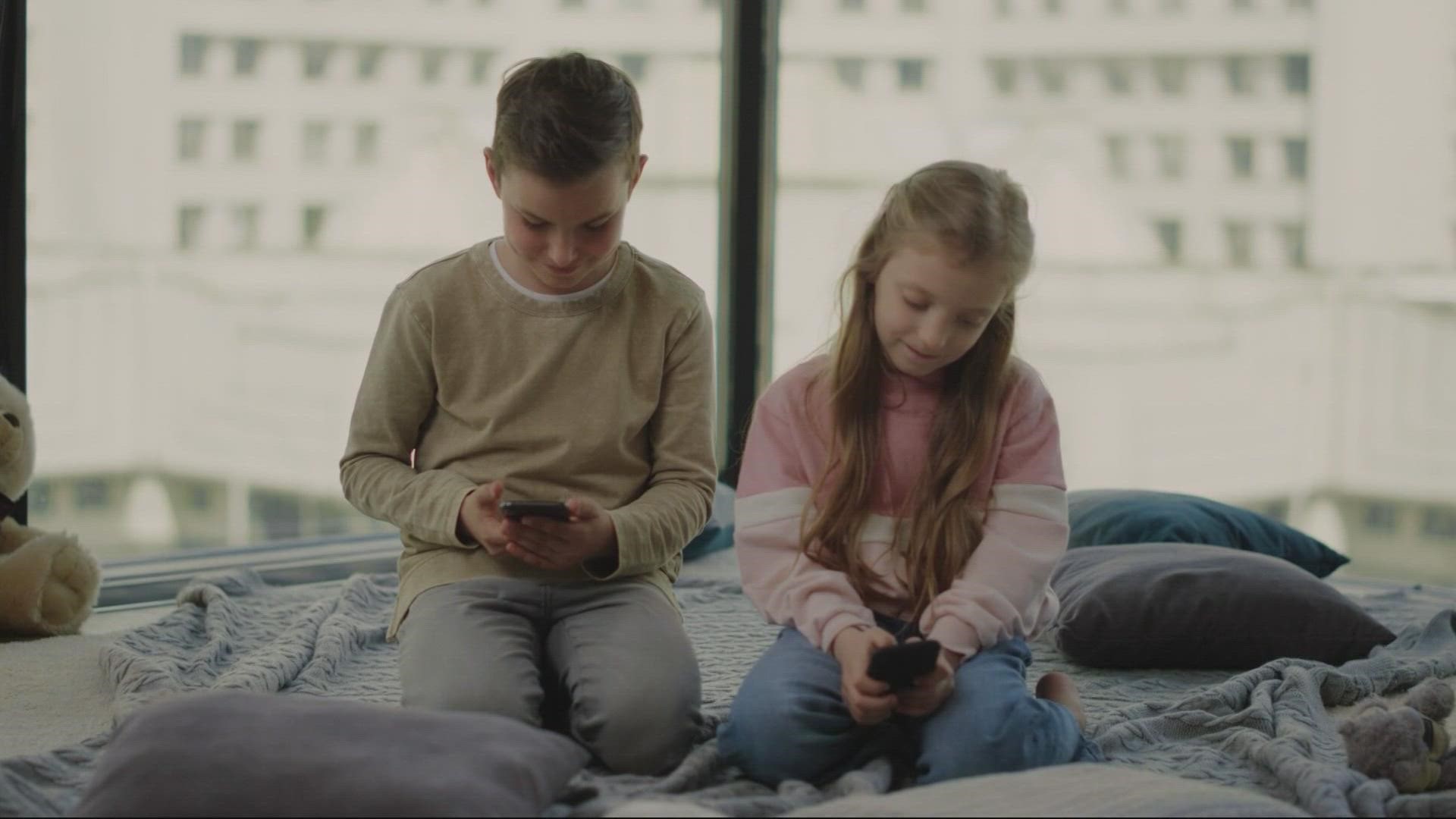PORTLAND, Ore. — A recent study found that frequent use of social media could be reshaping how adolescent brains develop, and at least one Pacific Northwest school district is blaming tech companies for their impact on kids' mental health.
The study, from the University of North Carolina, looked at 169 sixth and seventh graders in a rural part of the state over three years. They found that of the students who checked their social media more regularly, their brains' amygdala — the part that regulates emotion — was very sensitive to physically seeing the likes, dislikes and emojis these apps throw at you.
This sensitivity was showing up in their fMRI brain scans compared to those who don't check social media as much.
While the study produced interesting results, other scientists warn not to read too much into them.
"The researcher's efforts to try to understand this are good,” said Bonnie Nagel, professor of psychiatry and neuroscience at Oregon Health and Science University, in response to the University of North Carolina study. “I don't know if we can say that much based on what they found. So, it’s interesting. We certainly say that people who display different behavior at one time point in development look different later on."
Nagel has spent her entire career studying the way adolescent brains develop and says we shouldn't just blame social media for this study's findings.
"You can't infer causality here,” said Nagel. “You can't say that their brains developed this way because of that social media use. You can only say people who have that type of social media use at age 12 have different brain trajectories."
Nagel is part of one of the biggest studies in the country, called the Adolescent Brain Cognitive Development (ABCD) study. It’s meant to help understand the effects of social media on young brains. They're monitoring almost 12,000 kids across the United States over 10 years for their research.
"We started at age nine (or) 10 and the kids are well into their teen years. We have been following them for six, seven or eight years, depending on when they were enrolled,” said Nagel. “And these kids will be able to tell us a lot about how these different things impact the brain.”
Even if the science on social media's impact on kids is still emerging, a Pacific Northwest school district is taking action.
Seattle Public Schools filed a lawsuit that claims the companies behind TikTok, Snapchat, Facebook and Instagram have violated Washington's public nuisance law by intentionally contributing to the youth mental health crisis in the state.
And some parents are seeing it firsthand.
“It can really affect how kids see themselves and see other people,” said Erik Sarvela, a father of seven. “They can put out whatever they want of themselves on the internet and that's kind of dangerous.”
The district says it's seeing an increase in anxiety, depression, cyber bullying and eating disorders and can't keep up with the need for mental health services.
Nagel said that it's a normal part of development to engage in screen time but stresses that moderation is key. A 2-3 hour limit of screen time is a good happy medium, she said.
According to Nagel, higher amounts of screen time are associated with some negative outcomes. The ABCD study has already correlated high levels of depression, some challenges sleeping and higher rates of disorders like ADHD.
“I would say in general, if (screen time) is interfering with sleep and you’re seeing escalated types of mood symptoms then there’s a problem,” said Nagel.

